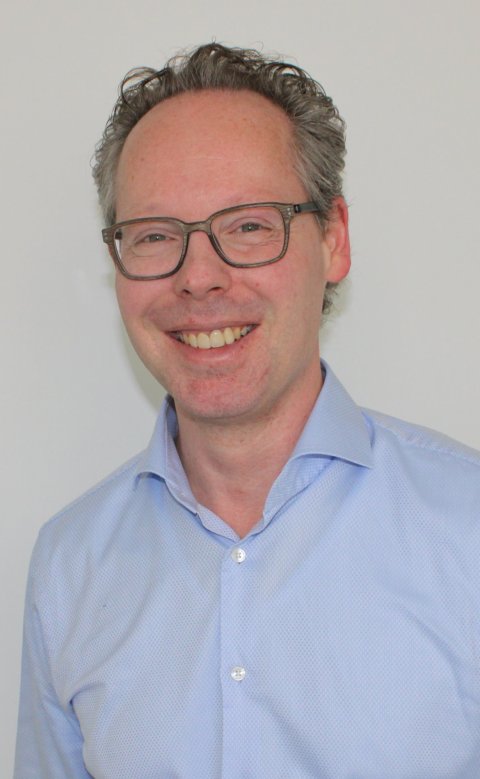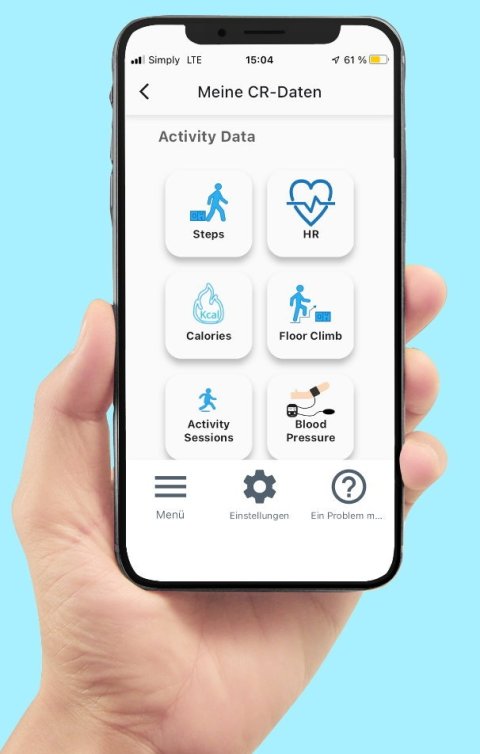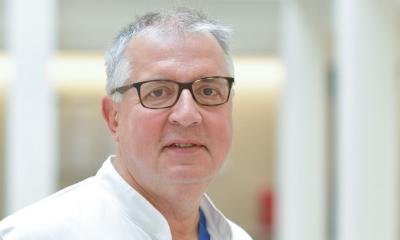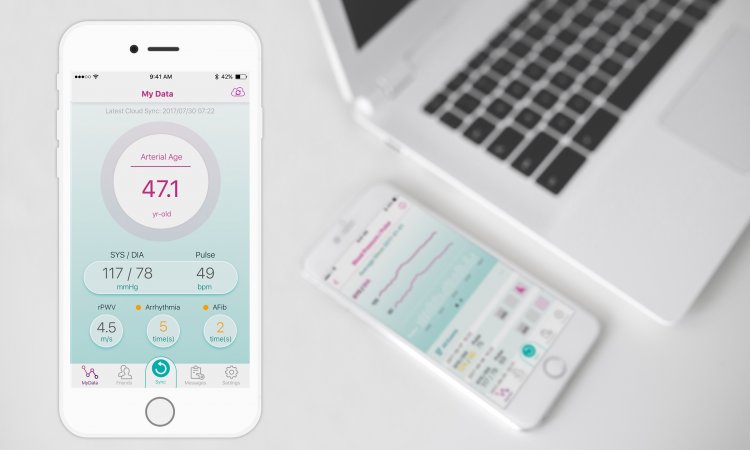Article • "Timely" study
Improved care after heart attack on AI-powered telemedicine platform
Coronary artery disease (CAD) causes more than 1.8 million heart attacks each year in Europe, 300,000 in Germany alone. In most cases, rehabilitation helps the patients to return to their everyday life. But what happens once the patients have left the rehab clinic? PD Dr. Boris Schmitz launched the Timely project to find out. The project aims to develop a patient-centered platform that provides early cardiac risk prediction and supports prevention and intervention in post-rehab care for CAD patients using eHealth and artificial intelligence.
Article: Sonja Buske

Photo: private
In a rehabilitation clinic, CAD patients learn how to change their lifestyle in order to be able to continue living with the disease for as long as possible and without re-infarction. A healthy diet, exercise, and stress reduction are the most important issues, but once back in their home many patients don’t follow through with the behavioral changes they learnt in rehab. ‘The first six months after rehab are crucial,’ says biologist and sports scientist Schmitz, since ‘only during this period behavioral changes will become a habit.’
A senior scientist at the Center for Clinical Rehabilitation at the Königsfeld Clinic, Schmitz wanted to find out how CAD develops after treatment has been completed in order to be able to influence the patients’ state of health after rehab. But post-rehab care does basically not exist: the guidelines require only a single follow-up visit at a cardiologist’s after six months. Too little and far too late, says Schmitz. With his randomized, controlled clinical study, he wants to show that cardiovascular risk decreases with the help of the Timely platform. For this purpose, 360 adult patients were recruited who had undergone myocardial revascularization after being diagnosed with CAD as well as follow-up care as part of cardiac rehabilitation. The project is conducted in three study centers in Germany, Spain and the Netherlands and 13 partners from industry, the outpatient sector and the clinical environment are participating in the development of the platform.
Equipped with wearables and app
In order to design the platform with the patient front and center, Schmitz onboarded the potential participants right at the beginning of their rehab in the form of a “living lab”. ’We interviewed the patients’, explains Schmitz, ’asked them about their wishes and needs, tried out several approaches and tested the user-friendliness of the app, among other things. It was important to us that all participants felt comfortable with the app – no matter how old they are and regardless of their previous technical knowledge.’

Image source: Timely project; Smartphone: Adobe Stock/denphumi; Mockup: HiE
After a thorough medical examination, the participants are equipped with various wearables for six months. In addition to a portable, wireless 3-lead ECG, they received a blood pressure monitoring device to measure resistance in the vessel and the speed of blood flow. Moreover, an activity tracker provides information about stress levels, exercise and activity calories. The “heart” of the study is the TIMELY app. It provides the patients with information on all aspects of rehab such as diet, stress management, weight loss or exercise and each participant can set their personal goals. Personal messages, push notifications and a chatbot regularly offer positive reinforcements to keep motivation up. Artificial intelligence processes large amounts of data and detects arrhythmias at an early stage. ’A change in sleep rhythm or an increased stress level can indicate arrhythmias,’ says Schmitz and adds that in such cases the team ’responds directly and contacts the patients who need immediate support.’
Digital dashboard
Via a digital dashboard, physicians, therapists and case managers access all data and the individual risk profile of each patient, which is automatically evaluated and interpreted. In the event of abnormalities – for example, when someone has not been exercising for a long time – the person is called on the phone to adjust the therapy if necessary or to arrange other kinds of help. The data is transmitted automatically via the mobile network and via secure systems in Germany, Schmitz emphasizes.
Intensive use over six months is enough to internalize the content. However, there are always setbacks in life, perhaps career changes or other illnesses that make it necessary to return to work
Boris Schmitz
After six and twelve months, the study participants return to the rehab facility for further extensive examinations. The last patient is expected to undergo this final exam by mid-2024. The primary endpoint of the EU-funded study is a biomarker score, which reflects the risk of mortality over the next ten years, and a test to assess physical performance. In addition, changes in diet and exercise behavior are analyzed. Schmitz wants patients to continue using the app for the rest of their lives, whenever they need it. ’Intensive use over six months is enough to internalize the content. However, there are always setbacks in life, perhaps career changes or other illnesses that make it necessary to return to work. My vision is that the app can be prescribed as a digital health application, a so-called DiGA, and be used not only for aftercare, but also for prevention.’
Profile:
PD Dr. Boris Schmitz is senior scientist at the Königsfeld Clinic, Center for Medical Rehabilitation. A biologist by profession, he also holds a doctorate in sports science. He spent most of his professional career in Münster as a research assistant, project and laboratory manager as well as a private docent. Schmitz is a member of the European Society of Cardiology (ESC) and works as a reviewer for various journals.
22.04.2024










